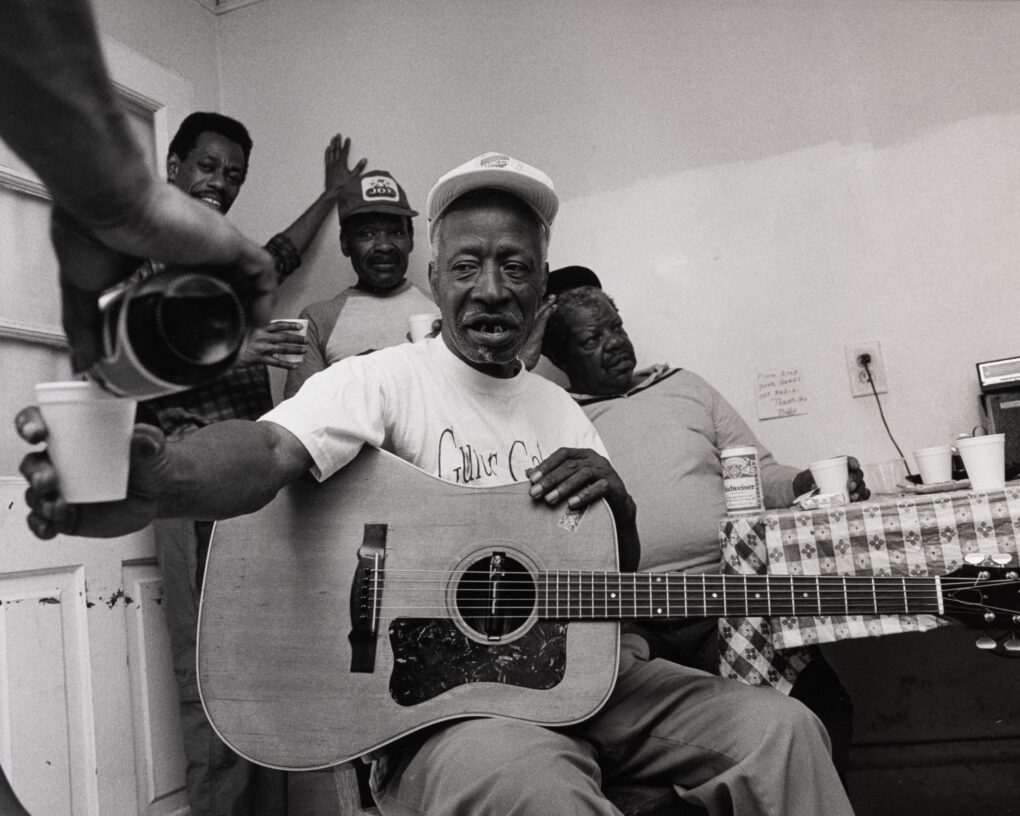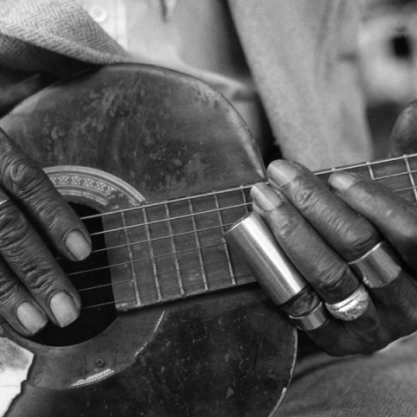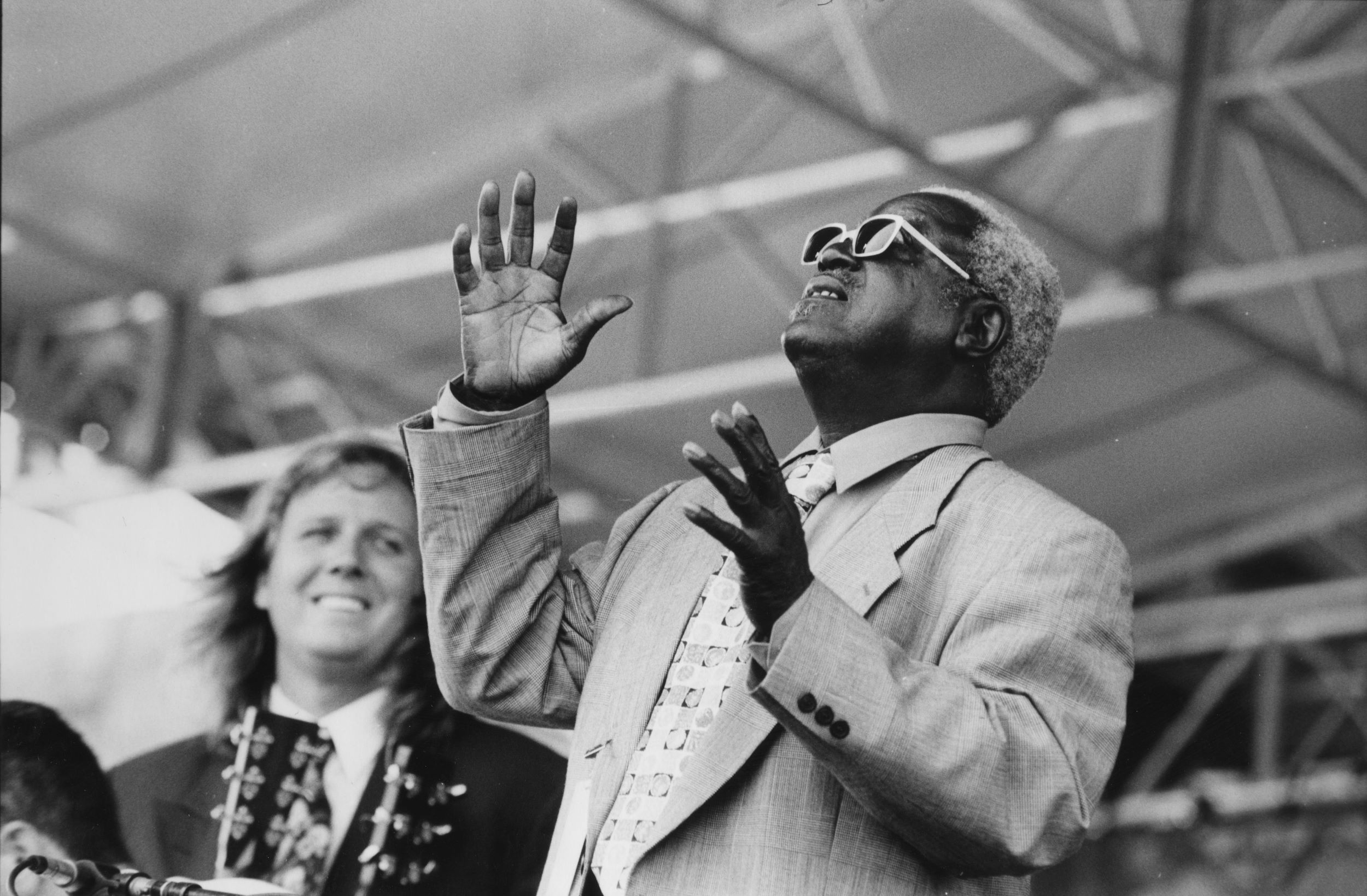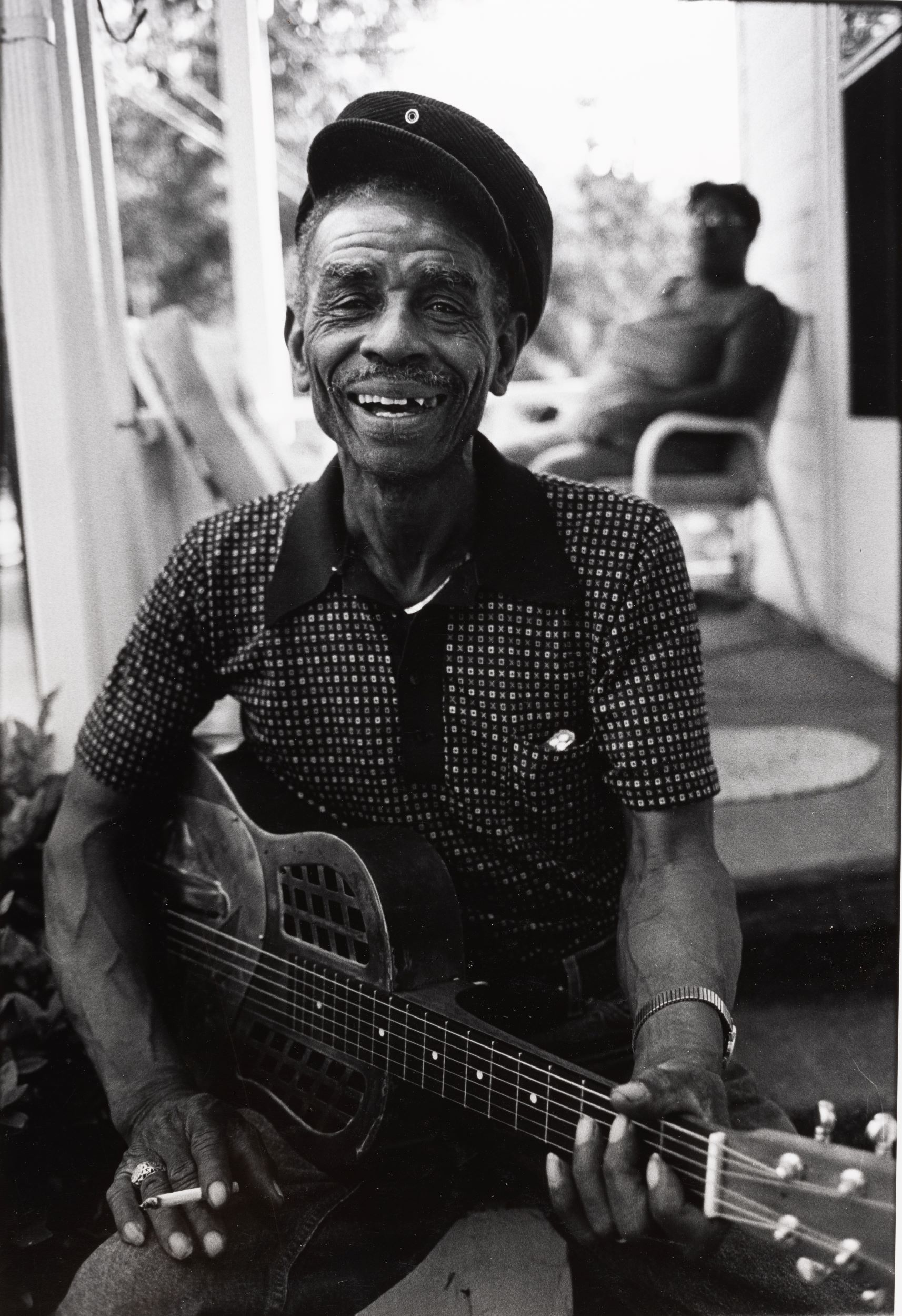Song Keepers: Music Maker Foundation Anthology-Disc One “Snap Your Fingers Acoustic Blues”

By James Calemine
In celebration of Music Maker Foundation’s 30th anniversary Song Keepers: A Music Maker Anthology will be released on February 16, 2024. Song Keepers delivers timeless photographs by Tim Duffy, soulful stories by the esteemed Georgann Eubanks and a box set of 86 songs by Music Maker artists. These recordings have been masterfully curated and thoughtfully arranged to highlight and explore four facets of American roots music: Acoustic Blues, Electric Blues, Sacred Soul and Gospel and Eclectic Folk. Song Keepers includes liner notes for each album that delightfully illuminate the music and the artists with accessible musicology and profiles.
You hold in your hands a precious gathering of homegrown music, collected over thirty years by a nonprofit organization dedicated to protecting and savoring the sounds of American Roots Music, particularly from the South.
Let’s dive into Snap Your Fingers: Acoustic Blues, the first stop on this unforgettable musical journey. Like the compelling black and white photograph of Luther Vines and Alice Speight on the first page of Song Keepers, the 23 songs on this album lay the table for what is to come. Kicking off the box set with a formidable compilation of acoustic performances epitomizes the essence of the full collection: this is “music made by the hand and the human voice,” as Rhiannon Giddens of the North Carolina Chocolate Drops aptly states.
Snap Your Fingers launches this earthy compendium with Guitar Gabriel (Nyles Jones)’s tune “Landlord Blues”. The original inspiration for the Music Maker Foundation, Guitar Gabriel performed with Bo Diddley, Chuck Berry, Muddy Waters and B.B. King. Like many of the artists featured in this box set, his roots were planted and grew in the rich soil of a musical family going back to his banjo playing great grandmother. His father was a blues guitarist and recorded with Blind Boy Fuller in Memphis. Tim Duffy reflects on his old friend, “When I met Guitar Gabriel, he told me if I ever ripped him off, he would shoot me. And he meant it.”
Next, Grammy-winning Alvin Youngblood Hart’s rendition of the Mississippi Sheiks song “Livin’ in a Strain” proves why Bob Dylan lauded Hart in his book, The Philosophy of Modern Song. Adolphus Bell’s “Black Man’s Dream” serves as a heart-rending dedication to Martin Luther King, Jr. When Duffy found the bluesman in 2004, Bell was living in his van.
Goldsboro, North Carolina, native Skeeter Brandon’s barroom piano navigates a soulful number titled “Blues Hangover” that can be heard only on this disc. Blind since childhood, Brandon started singing in church when he was six and playing piano by age nine. It must be noted that a book’s worth of material could be written about each Music Maker artist.
“Slavery Time Blues” by the poetic Rufus McKenzie sounds like it was recorded on a front porch far beyond some rural town in 1924, or 2024. As a child, McKenzie worked in the cotton fields with his sharecropping family when “didn’t nobody wear shoes but the boss and the mule”. “Greasy Greens”, written by George Higgs, sounds gritty as the dirt on farm grown collards. Higgs’ MMF album Tarboro Blues was named Best Blues Album of the Year in 2001 by Living Blues magazine.
Big Boy Henry sings ”I’m walking this old highway/I been walking night and day/My woman will understand/I got a heart that hurts me like any other man” on “Walkin’ Day & Night”. In 1983, Henry won the W.C. Handy Award for a protest song against Ronald Reagan. Gail Ceasar’s “Guitar Woman Blues” sounds sultry as summer showers the way she picks a six-string. Ceasar is legally blind. Her house burned down in 2021. MMF helped her rebuild with a new Martin guitar, a Fender Stratocaster, new amplifier, a recent album and other living essentials.
Four-time Grammy-winner Taj Mahal plays bass on Georgia musician Neal Pattman’s harmonica-laced “Disco Twist”. Pattman met Duffy in 1991. An accident with a wagon wheel left Pattman with one arm at age nine. In his later years, Pattman cultivated a devoted following in Athens, GA., Austin, TX,. and Winston-Salem, NC.
One of Tim Duffy’s earliest recordings, “Freight Train Boogie” by Captain Luke (Luke Mayer) is featured here in all its cosmic glory as the Captain plays a mouth harp. Captain Luke earned a global fan base through his Music Maker touring. Eubanks writes in Song Keepers, “Early on, Tim Duffy developed a keen ability to record a perfect balance between singers and their instruments.” That ability resonates in this recording.
Cora Mae Bryant’s “Yo-yo Daddy” exemplifies her guitar prowess. Bryant, the daughter of bluesman Curly Weaver, recorded her first MMF album in 2001. On this swinging six-string number, Bryant sings: “Take a long, tall woman to make a good man squall.”
Precious Bryant’s “If You Don’t Love Me, Would You Fool Me Good” captures her smooth voice, musicianship and memorable songwriting. It was Precious Bryant who said, “The blues tells the truth. Sometimes it be sad, sometimes it be happy. It works all kind of ways. Another MMF original, Cootie Stark (“King of the Piedmont Blues”), records with Taj Mahal on “High Yellow” that was recorded in 1994. The blind Cootie Stark earned the South Carolina Folk Heritage Award in 2005, the same year he died.
Willa Mae Bucker’s “Peter Rumpkin” is a titillating, burlesque classic that gets down low. Buckner’s obituary in the Greensboro News Record described her as “Known to many as Princess Ejo’, ‘The Wild Enchantress’ and ‘The World’s Only Black Gypsy’. In her younger days, Buckner worked as a fire swallower, a blues singer, a stripper and a contortionist.
“This is about a bad girl”, J.W. Warren says as he introduces a murder ballad called, “Have You Seen Corinna” where his guitar playing accompanies the spoken word song. It’s one of the collection’s strongest tunes that would resonate in a juke joint as much as down by the riverside. Warren, whose neighbor was once Big Mama Thornton, used a jackknife as a guitar slide.
David Butler’s instrumental “Poor Boy” resembles Blind Willie McTell’s guitar style. Butler played shortstop with The White Sox Negro Leauge and learned the blues from his father who played with Tampa Red. This song has never been officially released until now.
The left-handed John Lee Zeigler’s guitar tone on “Pretty Little Shoes” could serve as a film soundtrack that conjures images of a train rolling through a lush countryside. A Song Keepers excerpt reveals that Zeigler “was a true original from Kathleen, GA. He used a copper tube for a slide and played guitar more like an African banjo.”
North Carolina native Algia Mae Hinton’s “Snap Your Fingers” hits the senses like a $100 bottle of whiskey. A mother of seven from Johnston County, NC, Hinton played a mean twelve-string guitar. She was also “a flat-foot dancer, soulful singer, and Piedmont blues maven.” Hinton performed at the National Folk Festival and in Carnegie Hall.
Mr. Q’s (Cuselle Settle) rendition of “We Three”–a hit for Frank Sinatra and the Ink Spots–showcases a jazzy piano ditty you might’ve heard in a New Orleans saloon in the 1930s. Mr. Q lived in New York City during the Harlem Renaissance and proved quite the showman. “Biscuit Roller” was recorded in Rembert, South Carolina, by the reclusive pianist Albert Smith, who preferred to not tour and only play in church, but you’d never know that by hearing him deliver this freewheeling boogie-woogie. MMF released Smith’s album Big Belly Mama in 2022.
The final track, Etta Baker’s “Carolina Breakdown”, captures her transcendent guitar-picking style. Baker–one of the organization’s original members–started playing guitar at age three and this dreamy instrumental was the first song she heard her father play before she could hold a guitar. Baker’s career spanned almost ninety years.
Eubanks distills the essence of Snap Your Fingers: Acoustic Blues and the other three albums in this box set: “This collection of performances on four albums bears witness to the remarkable range of roots musicians from the U.S. South and a few more from beyond the region. … To listen to those songs is to go back in time and to appreciate up close the power and vivid presence of those voices (human and instrument) in all their variety and resonances.”
Song Keepers is a powerful collection of images, stories and songs that is both a celebration of and part of the living culture of American music. We will explore the next three Song Keepers albums in new stories that will be coming out over the next few weeks. In the meantime, if you love music, you’ll want this book on your coffee table and these songs coming through your speakers.

Get involved
& give back
The Music Maker Foundation is a 501(c)(3) nonprofit organization that depends on thousands of supporters. Together, we work to meet the day-to-day needs of the artists who create traditional American music, ensure their voices are heard, and give all people access to our nation’s hidden musical treasures. Please contribute or shop our store today.


